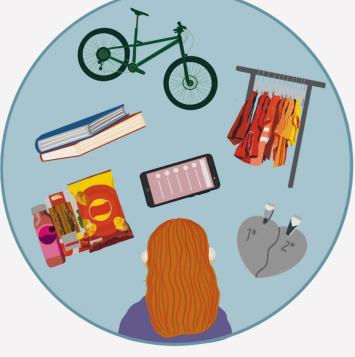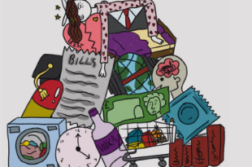Love it or hate it, SEAtS is here to stay. The controversial app, which was rolled out a couple of months ago, will now be employed to track other areas of life on campus.
The app, which the university insists is to aid with welfare and definitely has nothing to do with the Home Office trying to reduce immigration figures by going after international students, has proven successful so far. With 10.03% of the student body using the app, that’s an increase of over 10,000% compared to last year.
Along with the widening rollout, the app will also be connected to a central AI to help aggregate the thousands of data points collected for each student every day, this data will be used to maximise the health and success of students.
One prime target for tracking is students’ use of food outlets across campus, students consuming too much caffeine will have their beverages automatically switched to decaf. Since decaf is not entirely free of caffeine, portion sizes will also be slowly reduced until teabags are empty and coffee beans are practically dust, energy drinks will be watered down with an appropriately flavoured juice, probably orange.
Another issue this extended rollout will attempt to tackle is student alcoholism; outlets on campus such as the Stag’s will now require students to scan a code before they are handed any alcoholic beverage. The AI will track attendance the day after drinking and, as time goes on, will eventually be able to pre-mark a student as absent from any lectures it predicts they will be too hungover to attend. Repeatedly getting drunk may result in an Alcoholics Anonymous meeting being scheduled on the offending student’s timetable.
In an effort to prevent UTIs and other conditions which can arise from failing to relieve oneself frequently, students will be required to scan a code each time they use the toilet. If a student’s toilet usage is deemed too infrequent, a catheter-based intervention will be staged. In an effort to reduce water usage, all extracted urine will be used to water the various plants around campus.
Eventually, the app’s feature set will be expanded to interface with other smart devices and appliances in order to alert the university administration of any potential issues. Fitbits and other such devices will be able to feed information to the app which can then be used to track physical activity! Feeling stressed in the library? The administration will know! Having sex with multiple people a day? The administration will know! Relieving stress by having sex with multiple people a day in the library? The administration will know!
It will even be able to detect and identify the people you spend the most time interacting with; actions such as attending lectures and talking to teaching staff will even be rewarded with bonus marks however, be careful who you associate with, the university administration may also deduct marks if they feel a student has spend too long in the company of Solent students.
‘We appreciate that the rollout of such an app may be be a cause for concern for some students. Rest assured! If you have any concerns, express them within the vicinity of one of your smart devices and you will receive a reassuring email within the hour‘, a spokesperson for the university tells us. How reassuring.
Evidently, you shouldn’t worry about more intrusive data collection! After all, we’re already giving most of our information to the likes of Google, Meta, Microsoft, Apple, etc. and that’s going so well, what harm would another pair of eyes be?




